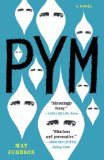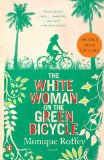Summary | Excerpt | Reviews | Beyond the book | Read-Alikes | Genres & Themes | Author Bio

A Novel
by Juan Gabriel VásquezThe Secret History of Costaguana feels more like oral history than fiction, as the first-person narrator José Altamirano describes the events that led up to his disclosure of his country's history to Joseph Conrad. The premise of the novel is a clever one: when José Altamirano realizes that he has been duped by Joseph Conrad (who steals Altamirano's life story to create a novel) Altamirano fights back, offering his own version of historical events. His "version" is the novel A Secret History of Costaguana. Here, fiction reflects real life; Joseph Conrad did write a Latin American novel called Nostromo, which Vásquez declares is "the best novel written about Latin America outside of the Spanish language." Still, despite his literary talent, Conrad did not write the story well enough and - here enters the storytelling - José Altamirano will put the record straight.
This is a complex novel, one that interestingly forms a perfect circle. When I finished the novel, I turned immediately to the beginning only to find that it was a seamless continuation of the novel's conclusion. As the story proceeds, the reading experience is more similar to descending a circular staircase than it is to traveling around a circular, uni-layer track. Altamirano leads the reader deeper into the narrative and holds her attention by almost disclosing critical plot points and then pulls back. As the reader peers over the railing into the stairwell, looking up and looking down, she will notice the stairs, or building blocks of the story, but will be unable to see how they all fit together or where the story will end. The effect is pleasing, puzzling, and occasionally hard work. This isn't the easiest novel to read, but its artistry is riveting.
The story is told from Altamirano's perspective, and as he entices the reader to stay with his story, he entreats understanding and sympathy. Referring to his audience as "Readers of the Jury," he asks that they judge his decisions and his life. However, the story carries another layer, too. It is a disclosure of guilt to a sympathizing public and a private family memoir. As he shares his life with the reader, he also calls upon his daughter Eloisa to have compassion for his life's choices. This negotiation between public and personal represents a theme of a novel: how do public lives and private lives impact, or even inform, one another?
José Altamirano understands himself to be a pawn of history, referring to historical events as the "Great Events" and politics as the "Gorgon". He is a small person, merely an observer, and someone who tries in vain to create a neutral space in which his family can thrive amidst the tumult in his country. He is unsuccessful, and it is clear that he sees Joseph Conrad's exploitation of his story as another example of how greatness squashes the small. When Altamirano confronts Conrad, his main complaint is that he does not appear in the narrative of Nostromo, suggesting that the greatest affront was not Conrad's theft, but that he erased Altamirano's role in his own history; the person who experienced historical events is not as important as the events themselves. Conrad's exemption of Altamirano stirs him, finally, to take a stand.
Just as Altamirano strives to create a more accurate counter-narrative to Conrad's version of Latin American history, so too does Vásquez attempt to infuse realism into the Latin American novel. Latin American novels have become synonymous with Magical Realism, a literary method that allows the conflation of realism and magic, history and mythology, to create a new, hybrid story, one that many Latin American authors believe best captures the "paradox of the union of opposites" (see backstory on Magical Realism). In these novels, characters fly on carpets, the dead talk, and paranormal activity of all kinds are commonplace. Vásquez stakes his claim early when Altamarino says, "Calm yourself, Eloisa dear: this is not one of those books where the dead speak, or where beautiful women ascend to the sky, or priests rise above the ground after drinking a steaming potion." In other words, this is not the stereotypical Latin American novel, but something new.
Vásquez employs the familiar wry tone that can be found in many other Latin American novels, but The Secret History of Costaguana is in conversation with realism - with Conrad's Nostromo - rather than with the sorts of stories that resort to mythology to address politics. There is quite a bit of politics, war, and empire building in this novel, and Altamirano engages with these realities head on.
Though Vásquez clearly intended Altamirano's story to stand on its own, I wondered what Conrad had written in Nostromo, how he had chosen to tell Altamirano's "story," and whether I should read it in order to understand his perspective. These thoughts are a testament to Vásquez's skill; Altamirano's magnetic voice and his hopeless history are so authentic that it is easy to forget that the entire novel is merely fiction, a figment of Vásquez's imagination.
This novel is a brilliant exploration of how stories and histories are told and of how one man's version of events is not another's. Fans of Gabriel García Márquez and Mario Vargas Llosa will enjoy Juan Gabriel Vásquez's multi-layered, anguished tale - a story that seeks to understand the inheritances of history.
![]() This review was originally published in The BookBrowse Review in July 2011, and has been updated for the
August 2012 edition.
Click here to go to this issue.
This review was originally published in The BookBrowse Review in July 2011, and has been updated for the
August 2012 edition.
Click here to go to this issue.

If you liked The Secret History of Costaguana, try these:

by Mat Johnson
Published 2012
A comic journey into the ultimate land of whiteness by an unlikely band of African American adventurers

The White Woman on the Green Bicycle
by Monique Roffey
Published 2011
A beautifully written, unforgettable novel of a troubled marriage, set against the lush landscape and political turmoil of Trinidad
Your guide toexceptional books
BookBrowse seeks out and recommends the best in contemporary fiction and nonfiction—books that not only engage and entertain but also deepen our understanding of ourselves and the world around us.